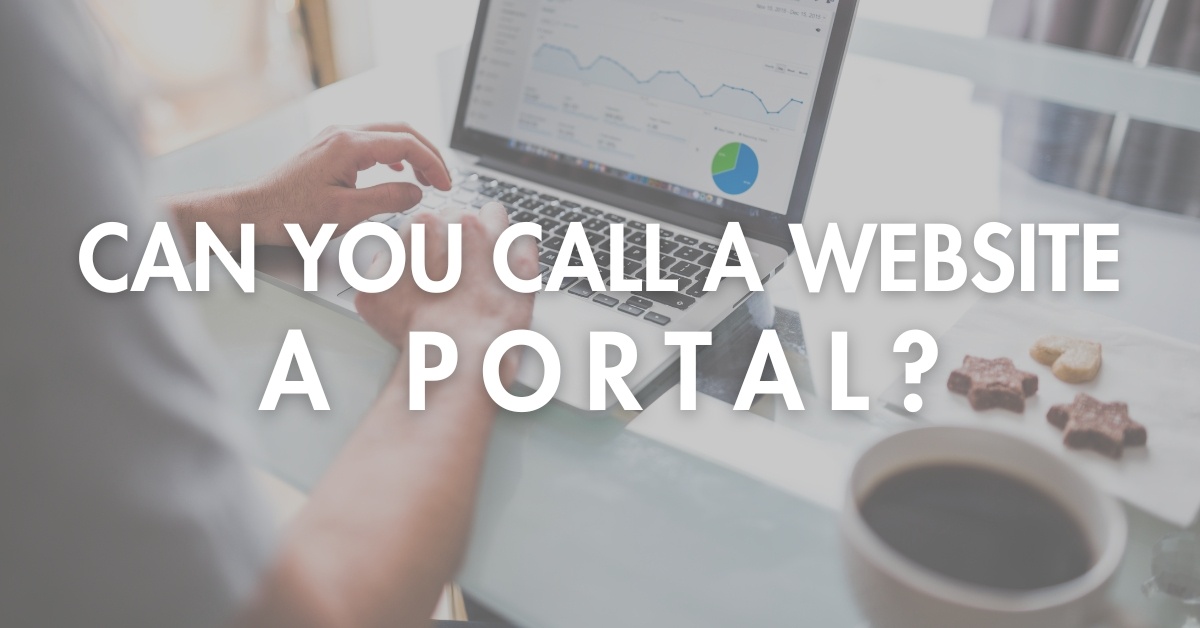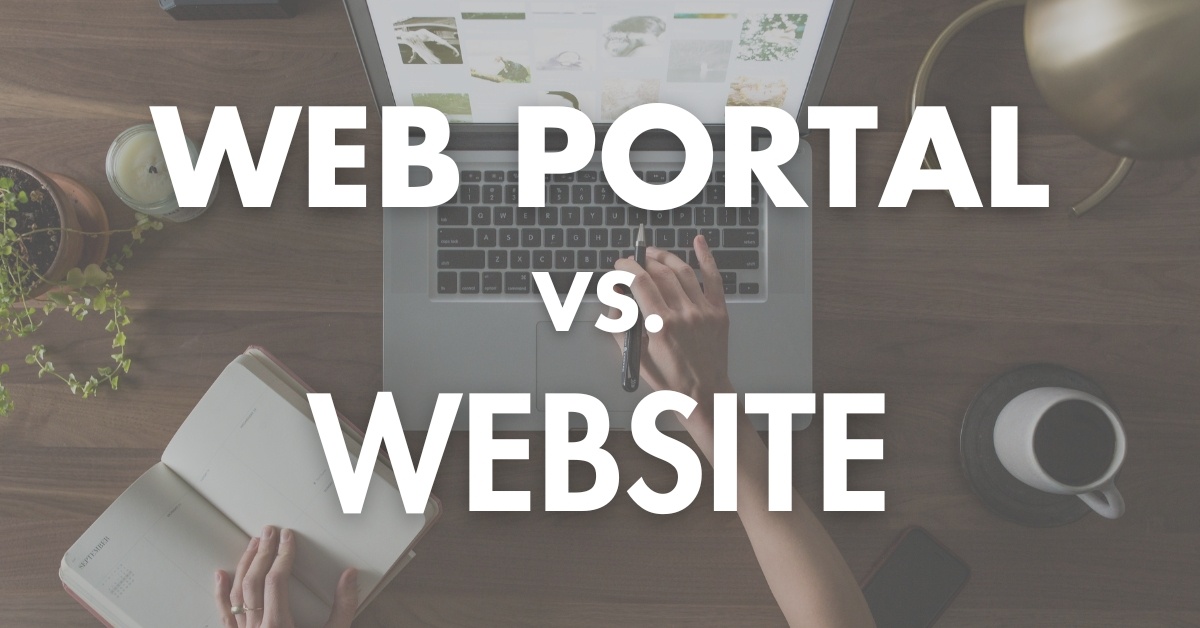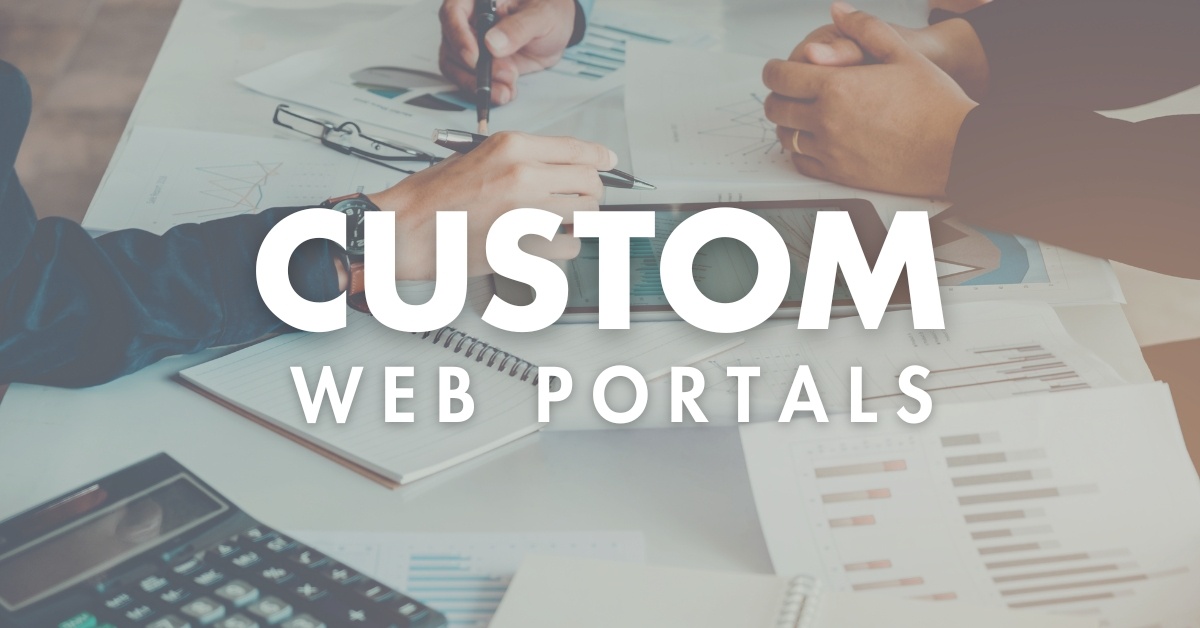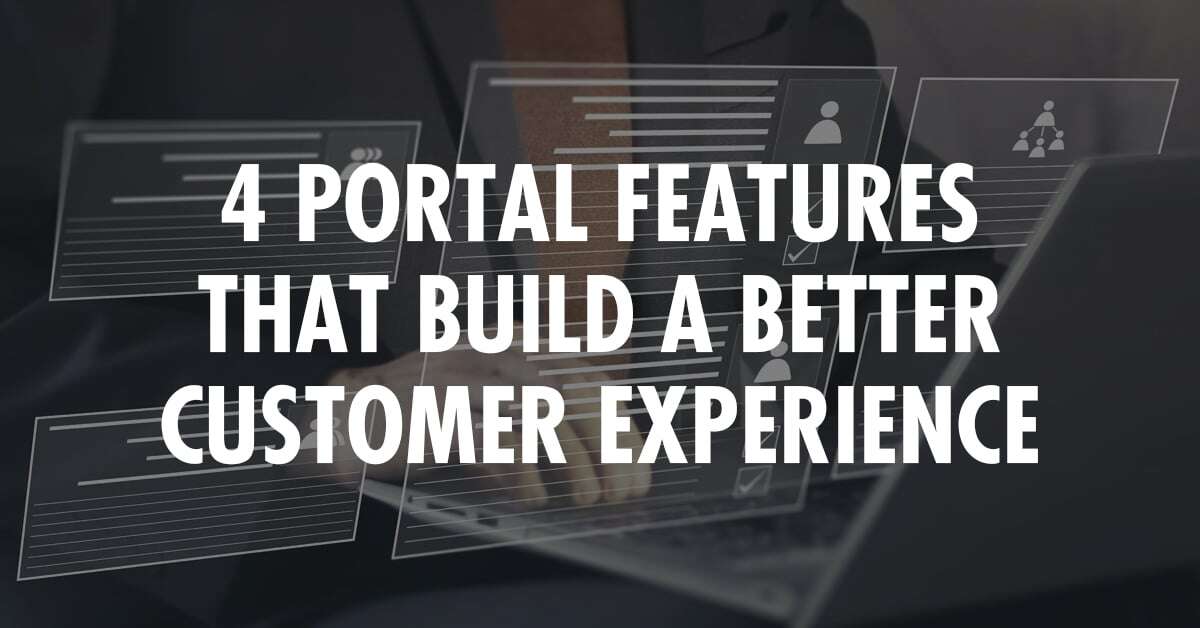Web Portal vs Website
When it comes to online tools for businesses, the terms "web portal" and "website" often get mixed up. But they're actually quite different. Both can...
Improve customer satisfaction and increase operational efficiency with a client portal.
Take control of your operations with customized software solutions.
Help your in-house dev team get more done, faster with our Midwest-based experts.

The terms "website" and "web portal" are often used interchangeably, but they have distinct characteristics. Understanding the difference is crucial, especially when considering the development of custom web portals for your business. This article will explore the key distinctions between a website and a web portal.
Can you call your website a portal? We get this question a lot and our answer is, it depends? It might not be the most straightforward answer, but it really does depend on what your website does and the functionality it provides.
Simply put, not all websites can be considered a portal. A website is a collection of interconnected web pages accessible through a web browser. It can serve various purposes, such as providing information, selling products, or showcasing a portfolio.
A web portal, on the other hand, goes beyond providing general, broad information about your business. It gives users access to tools, resources, and personalized content that makes their experience more meaningful.
Let's consider Google as an example. While many people think of it solely as a search engine, it has evolved into a comprehensive web portal.
Most users typically create a Google Account. This account provides access to a wide range of services offered by Google.
This integrated approach—where a single Google Account provides access to a suite of services—exemplifies the core characteristics of a web portal. By enabling users to seamlessly navigate between different services and manage their online activities from a central hub, it ensures convenient access to their information from anywhere.
To be considered a true web portal, there are a few key characteristics that separate it from a regular website:
These enhanced set of features elevates a website beyond a simple collection of web pages and establishes it as a true web portal, a centralized hub for accessing a wide range of online services and information.
We all online shop these days. So, let’s use an ecommerce site as an example for explaining the difference between a regular website and a portal website.
A regular e-commerce website focuses on facilitating online transactions and providing a platform for customers to purchase products or services. Common features found on such websites include:
An e-commerce portal website would include all those same functions but extend beyond those core features to offer a more integrated and personalized experience. For example, some extended features that would turn a regular e-commerce site into a portal website would be:
These additional features enhance the user experience, create a more engaging and interactive platform, and move beyond the basic functions of an e-commerce site.
In conclusion, while all portals are websites, not all websites are portals. Portals offer a more integrated and personalized experience, acting as a single point of access to a variety of online services and information.
To learn more about the benefits of developing a custom web portal for your business, please visit our article on Custom Web Portals.

When it comes to online tools for businesses, the terms "web portal" and "website" often get mixed up. But they're actually quite different. Both can...

With so much technology available, businesses are under constant pressure to elevate customer experiences, optimize operations, and remain...

3 min read
To truly harness the power of a client portal, it’s essential to focus on four key features: a user-friendly interface, robust security and...